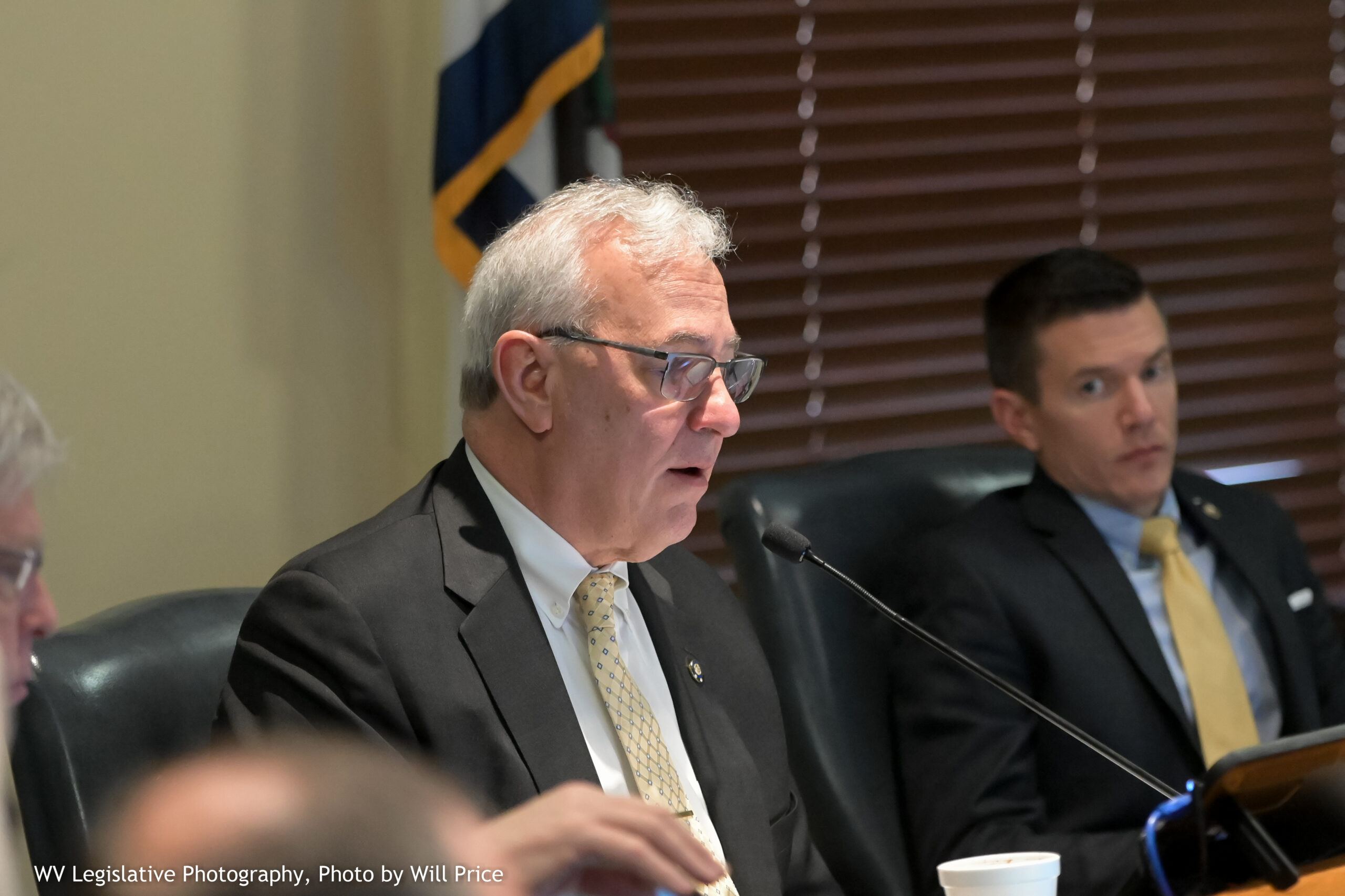MORGANTOWN — Opponents of a West Virginia Intermediate Court of Appeals might view it like one of those movie monsters that never dies but keeps coming back for sequel after sequel.
An intermediate court bill passed the Senate 23-11 in 2018 and died in House Judiciary. Another one, from the governor, passed the Senate 17-16 in 2019 and died again in House Judiciary.
It’s back again, as SB 275. Senate Judiciary got a first look at it Friday afternoon. Chair Charles Trump, R-Morgan, arranged it so members could take the bill home over the weekend, look it over and come back armed with questions for Monday morning’s meeting.
Proponents see the court as necessary to enhance West Virginia’s business image, to be seen as a place where a business has a right to a fair hearing. In his State of the State Address in January, Gov. Jim Justice said, “We need to do it. … We’ve got to get that across the finish line.”
Opponents see it as a needless expense and an additional litigation step that will drag out the process and favor deep pockets over the average Joe.
That will become apparent once again on Monday as senators frame questions in order to get their views across.
For now, committee counsel Sarah Canterbury walked members through a PowerPoint on the major points of the bill, which closely resembles last year’s.
The proposed court will have two districts – northern and southern – with three judges for each. The districts were formed to avoid splitting circuit courts – two family courts are split – and cover roughly equal population areas – 873,595 for the north, 932,237 for the south.
Judges would serve 10-year terms and earn $130,000 per year. They would be appointed, not elected, and not eligible for re-appointment.
The court would handle appeals of circuit court civil cases, guardianship and conservatorship cases; family court decisions; contested administrative agency decisions; and Worker’s Comp Board of Review decisions. It will not handle criminal or juvenile proceedings, child abuse and neglect or mental hygiene proceedings, or appeals form the Public Service commission, among others.
Review of all cases under its jurisdiction will be mandatory, with Supreme Court discretionary review as a final resort. Certain cases of fundament public import or subject to time exigencies could bypass the intermediate court and go straight to the top.
The Supreme Court handled 1,139 cases in 2018 and 1,161 in 2019. Of those, 738 in 2018 and about 731 in 2019 would not fall under the intermediate court’s purview. About 188 in 2018 and 216 in 2019 would have seen the double step of going before both courts.
Every intermediate court case would result in a written decision. Every case would be subject to a $200 filing fee that would go into a special fund for the State Police Forensic Laboratory.
The estimated startup cost would be $7.6 million in 2021, with annual costs thereafter at $6.34 million. The cost would be offset by elimination of the Office of Judges for Worker’s Comp cases, at a savings of $2.6 million.
Senators tossed out a few quick questions before the meeting ended. Sen. Mike Woelfel, D-Cabell, wondered about creating or increasing a tax to pay for the court. Trump said any senator would be welcome to offer that as a bill amendment when they get to that stage.
The Monday moring meeting will last only an hour before the floor session, so the committee will resume work on the bill Monday afternoon.
Tweet David Beard @dbeardtdp Email dbeard@dominionpost.com




